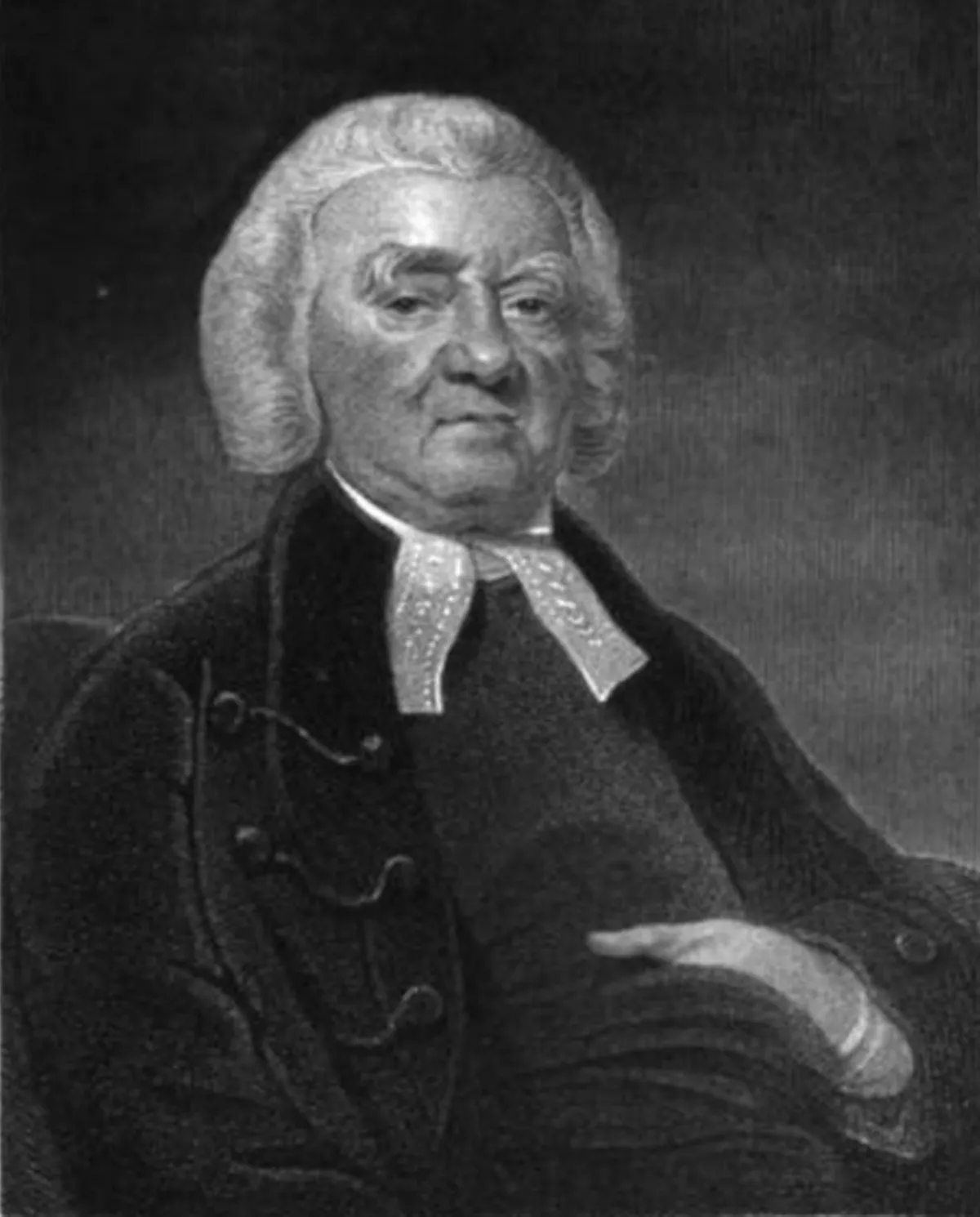 1.
1. Samuel Parr, was an English schoolmaster, writer, minister and Doctor of Law.

 1.
1. Samuel Parr, was an English schoolmaster, writer, minister and Doctor of Law.
Samuel Parr was known in his time for political writing, and as "the Whig Johnson", though his reputation has lasted less well than Samuel Johnson's, and the resemblances were at a superficial level; Parr was no prose stylist, even if he was an influential literary figure.
At Easter 1752 Samuel Parr was sent to Harrow School as a free scholar, and when he left in the spring 1761, he began to assist his father in his medical practice.
Samuel Parr's father tried to direct Samuel towards a medical career.
Stubbornly, Samuel Parr repeatedly turned down offers to extend his medical knowledge.
Samuel Parr was ordained deacon by Richard Terrick, Bishop of London, on Christmas Eve 1769, and for a short time he served curacies at the nearby parishes of Willesden and Kingsbury.
Samuel Parr repaired the buildings that had fallen into decay and he took a house near it for the reception of private boarders.
Samuel Parr, turning his attention to obtaining a doctorate and with one in divinity not forthcoming, swapped his studies to law.
In late 1788, the installation of the Prince of Wales as regent almost saw Samuel Parr become the bishop of Gloucester.
In later years Samuel Parr was prone to bad colds and from two he developed erysipelas.
Samuel Parr bore a long illness with patience and piety, and died at Hatton parsonage on 6 March 1825.
Samuel Parr was an adamant support of Charles James Fox, and vehemently disliked William Pitt the Younger.
Samuel Parr succeeded in copying Johnson's uncouthness and pompous manner, but had neither his humour nor his real authority.
Samuel Parr was famous as a writer of epitaphs and wrote inscriptions for the tombs of Burke, Charles Burney, Johnson, Fox and Gibbon.
Samuel Parr challenged the views of the anarchist writer William Godwin in a Spital Sermon delivered at Christ Church Greyfriars in 1800, arguing against Godwin's views that family affections, gratitude and other natural sentiments were inappropriate determinants of moral obligations.
John Johnstone lists approximately 1500 of Samuel Parr's correspondents, including two members of the royal family, four archbishops and a vast selection of dukes, marquesses, earls, viscounts, lords, knights, judges and members of parliament.